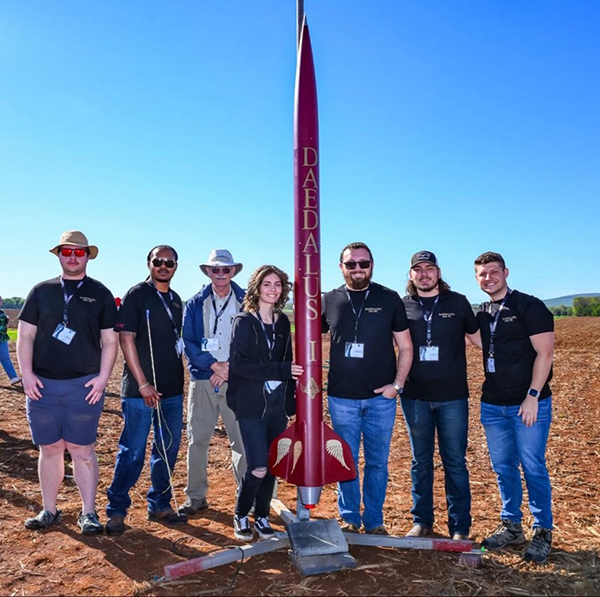
Developing Tomorrow’s STEM Workforce Through Partnership
TME Interviews Leaders of the Panama City Post
TME recently interviewed leaders of the Panama City Post about paying it forward, their repertoire of STEM outreach, and the benefits of collaborating with similar-minded professional organizations.
Building the engineering workforce of the future is rooted in K-12 outreach. Engaging with students in middle school and high school, even elementary school, can set them on a path for success. Programs in local communities, such as those led by the Panama City Post, contribute to this goal in a variety of ways: meeting students where they are with education, enrichment, mentorship, and financial assistance.
TME recently interviewed leaders with the Post about paying it forward, their repertoire of STEM outreach, and the benefits of collaborating with similar-minded professional organizations.
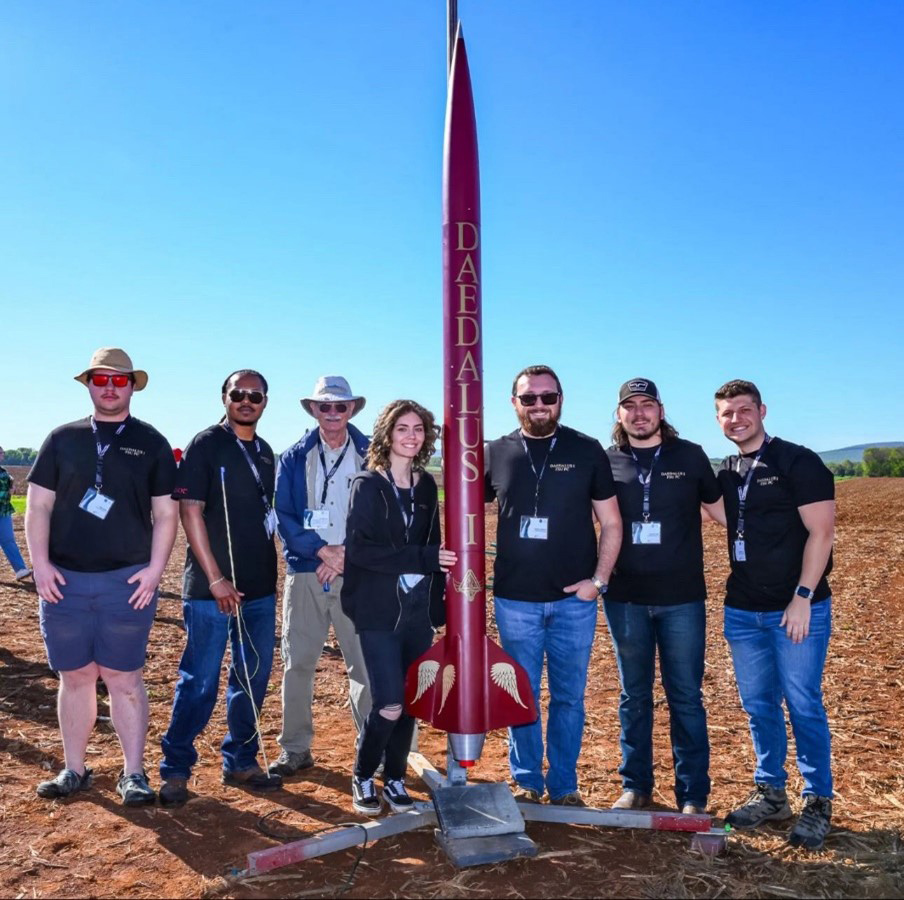
TME: What are some of the Panama City Post’s programs that support workforce development and STEM outreach?
PANAMA CITY: The Panama City Post has a long history of sponsoring STEM activities that have impacted a growing number of K-12 and college students across Northwest Florida. These include funding nearly $500,000 over the past 10 years for college scholarships; funding five to eight high school students to attend SAME’s Engineering & Construction Camps each year; and donating funds to the Girls Inc. STEM Summer Camp.
Our members volunteer as judges at STEM events like robotics competitions, MATHCOUNTS, and Invention Convention (formerly the Science Fair). We have been very involved with the Florida State University-Panama City senior thesis presentations, which, in particular has seen great success with our members providing professional encouragement and guidance for follow-on competitions, including the school’s participation at future NASA-sponsored collegiate Rocket Club competition events, and entering its project (a prototype fall-resistant senior citizen walker) at the International Conference for Biomedical Engineering in Dublin, Ireland.
TME: How does the Post expect to support SAME’s 2030 strategic goals surrounding People, Partnerships, and Solutions?
PANAMA CITY: To Drive Partnerships, the Panama City Post partners with three engineering-focused organizations to conduct monthly meetings: the Florida Engineering Society, the American Public Works Association, and the Institute of Transportation Engineers. Our Post enjoys active participation from corporate member firms supporting the $5.3 billion rebuild at Tyndall AFB, Fla. The networking opportunities at our monthly luncheon events are critical to fostering solid partnerships, which are essential to ultimately delivering the Installation of the Future for the U.S. Air Force. Our monthly programs offer at least one PDH, supporting the professional registration requirements for many of our attendees. They attract a wide variety of representatives from the Bay County Public Works, Defense Department, state engineers and environmental regulators, and private sector firms.
As an example of how we are Delivering Solutions, we hosted a half-day IGE workshop in coordination with SAME’s Health Engineering Task Force to engage defense health engineers, the Air Force’s mechanical systems subject matter expert, and industry practitioners to determine best practices to address competing requirements for energy reduction mandates and proper ventilation for indoor workspaces from a health perspective. It was a well-attended and productive event.
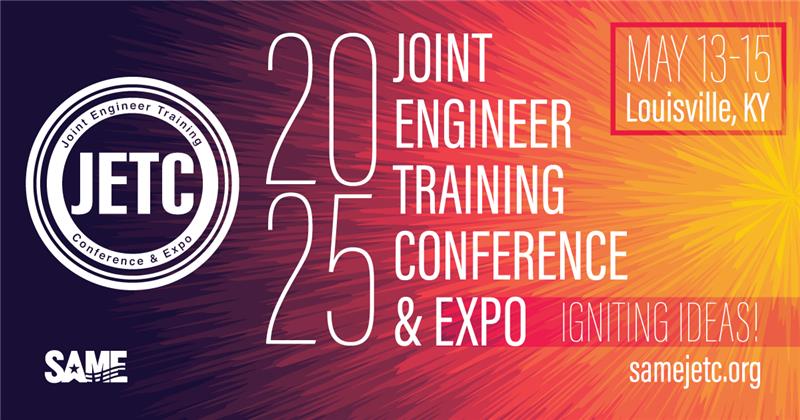
Over the past 10 years, our Post also has partnered with the Gulf Coast Energy Network to co-host the annual Power-Up Energy Expo. Proceeds from the most recent event in October resulted in a $4,000 donation to the Panama City Post to fund four additional high school students to attend an SAME Engineering & Construction Camp.
Finally, to Develop People, our Post’s STEM director maintains close contact with the Bay County and Gulf County school districts to keep us aware of upcoming events and provide school administrators with information on student opportunities, such as college scholarships, SAME’s Engineering & Construction Camps, and summer internships. The Panama City Post also provides mentors who routinely attend the SAME Student Chapter meetings at the Florida State University-Panama City to provide guidance, discuss career opportunities after graduation, and answer questions from the engineering students.
TME: What have been the keys for developing Student Chapters at Florida State University-Panama City and Gulf Coast State College?
PANAMA CITY: Both schools, through a collaborative effort to tailor course curriculum, are consistently producing high quality engineers that offer immediate value to firms interested in recruiting and hiring new talent. Attracting student members is not difficult, especially when they see the value in attending SAME events, like networking opportunities that directly result in relevant internships and post-graduation employment, the opportunity to compete for college scholarships, attendance at SAME conferences and special events, and access to seasoned professionals.
In years past, the Panama City Post has periodically covered the cost for student members to take the Fundamentals of Engineering exam. Our Post also budgets funds to offset the cost for members of the Florida State University-Panama City’s Rocket Club to travel to Alabama to compete at the annual NASA-sponsored collegiate rocket competition. During the spring 2024 competition, the Rocket Club competed against more than 100 collegiate teams and placed within the top 35, receiving special recognition from the NASA evaluators for the near perfect score assessing the launch and landing phases. Of particular note, the club members engage with over 250 K-12 students annually to promote STEM education and motivate the students to pursue a STEM or engineering career path.
Active participation from the student members provides a great networking opportunity with thought-provoking, outside-the-classroom discussions focused on creative problem-solving solutions to some of the engineering profession’s most challenging issues. Several recent graduates have accepted positions supporting the rebuild at Tyndall. These young professionals are serving in highly responsible roles as project managers for a plethora of multi-million-dollar construction contracts.
TME: How has the Post’s engagement with other area professional organizations advanced support of STEM events?
PANAMA CITY: We partner with the Florida Engineering Society, American Public Works Association, and Institute of Transportation Engineers. These groups routinely team with our Post to serve as judges for K-12 and local college STEM events, participate in fundraising, provide mentoring and internships for college students, and provide post-graduate employment opportunities. At monthly Post meetings, participation from these sister organizations boosts attendance while expanding networking opportunities for our student members. They also aid in securing guest speakers who can address a broad spectrum of common interest topics specific to engineering.
Our Post also has teamed with the Gulf Coast Energy Network for nearly a decade to co-host the annual Power-Up Energy Expo. The October 2024 event was attended by more than 200 government and private sector professionals.
Our monthly meetings offer a great way for local employers like Eastern Shipbuilding and the Naval Support Activity-Panama City to advertise new positions.
Finally, we join with other Posts across the Southeast to create excitement for middle-schoolers to pursue STEM careers, such as our support for the Mobile Post’s Go Explore Math & Science STEM Program. We also support GEMS, which is planned and executed by the American Association of University Women and the University of South Alabama.
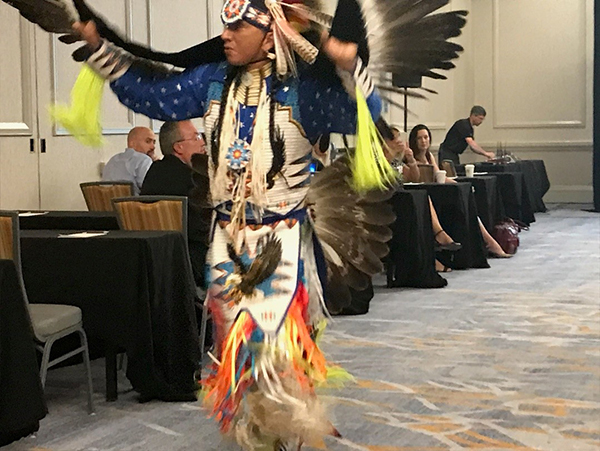
TME: What are some ways the Post engages each of its different membership groups?
PANAMA CITY: Our Post routinely sends two members to Post Leader Workshop each summer to train future volunteer leaders, provide them with better awareness of SAME’s strategic goals, see what other Posts are doing, and hear firsthand from SAME national leadership. In addition, many of our board members set time aside on their calendars to attend JETC and SBC.
We build leadership succession by initially introducing energetic members into committee roles, then sliding them into a director role, and ultimately into officer positions. Our Post President is supported by a 1st Vice President and 2nd Vice President, with each of these positions eventually moving up to transition into the role of Post President.
At our monthly meetings, the Post affords the opportunity for our sister engineering organizations to arrange guest speakers to address a range of topics. Our Programs Director also attracts many guest speakers. For example, at a recent luncheon, Larry Yazzi, a Florida-based Native American from the Meskwaki Nation Tribe, performed a ceremonial Indian dance and expressed his thanks for SAME’s ongoing support to Native American STEM programs. We have had great success with the employer of our monthly speaker covering the cost of lunch. And, in the case of the student members, providing a no-cost lunch has proven to be a great way to secure their participation. Conducting monthly lunch meetings at on-campus facilities has simplified their ability to actively participate as well.
Over the past 20-plus years, the Panama City Post has hosted a very popular Industry Day. Not only does this event provide a great way to raise funds to support scholarships and other STEM-related initiatives, it is a valuable venue to showcase capabilities, interact with defense officials, and strengthen relationships with others across government and industry. There is a lot of engineering work to deliver throughout the region. Collaboration is crucial to success for our nation.
Over the past two years, our Post has provided $25,000 to sponsor summer STEM camps and K-8 STEM studies for Florida-based Native American youth. We also are proudly serving as one of four Posts that help execute SAME’s STEM Pathways Program to support STEM outreach for Native American youth. We invite the scholarship recipients to our Industry Day so they can be recognized.
TME: What advice would you share with other Post looking to expand their STEM outreach?
PANAMA CITY: You do not have to build a program from scratch. Partnering with other Posts, consulting with your Regional Vice President, and seeking like-minded local organizations that you can pool limited resources with can be a good place to start for producing greater and far-reaching results. Reach out to another Post that has a strong network of Fellows, if yours does not.
From an awareness standpoint, establish solid contacts with your local K-12 school’s guidance counselors and maintain awareness of STEM opportunities that are associated with your school districts and nearby colleges and universities. Advertise SAME-sponsored programs with high school guidance counselors and on social media.
From an execution standpoint, ensure your Post is actively involved with hosting fundraisers, like golf tournaments or as part of conferences. Many member companies are standing by to financially support these events. There is also considerable value to sending members to Post Leaders Workshop, where they can learn strategies to expand and strengthen your Post’s awareness and involvement with a variety of STEM initiatives.
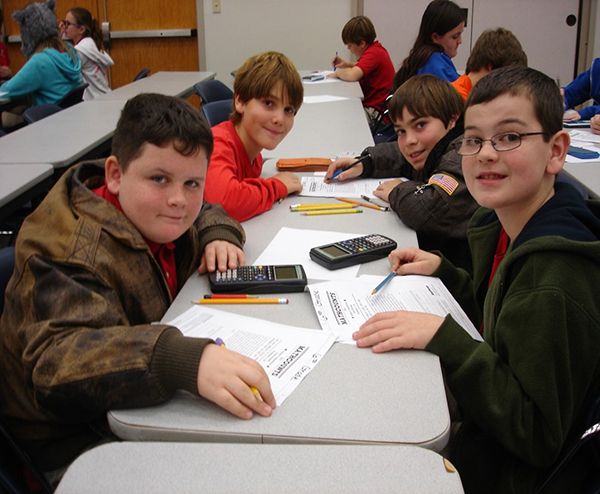
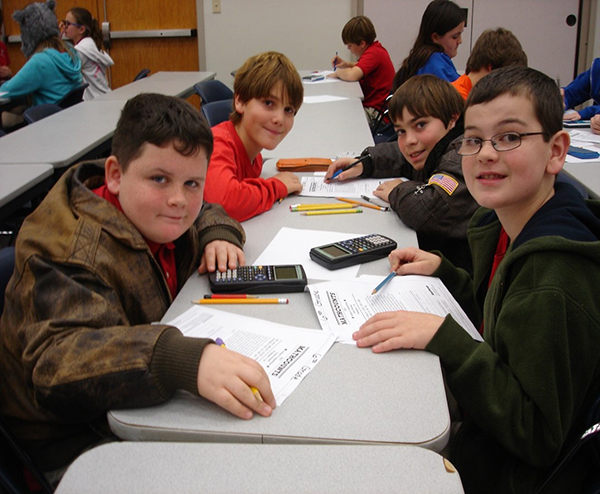
Where Are They Now?
As an example of the impact STEM outreach programs can have, consider the paths of four Panama City middle school “Mathletes” from the February 2011 MATHCOUNTS competition that our Post supported (photo, above).
Where are they now? One is pursuing a doctorate degree from the University of Florida with plans to become an astrophysicist with a thesis on interplanetary laser-based communication systems. Another is a successful music writer in Nashville, Tenn. A third graduated top of his class in mechanical engineering at the U.S. Naval Academy and is now a Marine Corps Officer stationed at Quantico, Va. And the fourth earned his associates degree in high school, followed by a mechanical engineering degree and MBA from the University of Alabama (magna cum laude), and is now a rocket scientist at Redstone Arsenal in Huntsville, Ala.
Published in the March-April 2025 issue of The Military Engineer
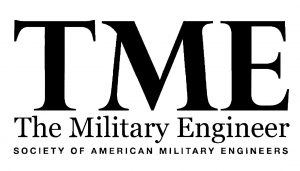
Check Out Related Articles From TME
-
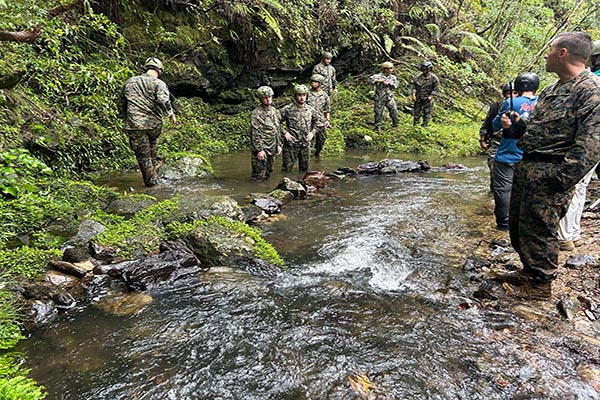
Deploying Renewable Generation Through Small-Scale Hydropower
A field demonstration and ongoing investigation of modular hydrokinetic turbines by the U.S. Army Engineer Research & Development Center’s Construction Engineering Research Laboratory illustrates the potential applicability for using the technology on military deployments. -
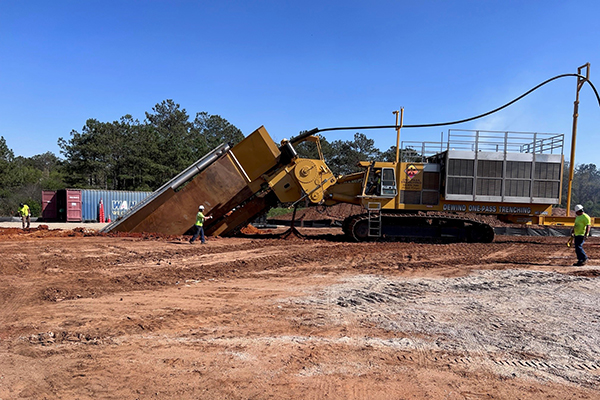
Rethinking Traditional Treatment Systems for PFAS Remediation
At two U.S. Air Force bases impacted by historical releases of aqueous film-forming foam, innovative methods in treating PFAS in both surface water and groundwater provide examples of success in safeguarding health for military personnel and nearby communities. -
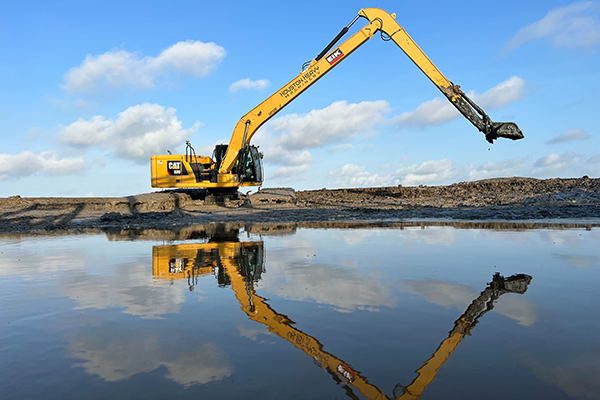
Tackling Restoration Projects With Amphibious Excavators
When faced with soft and wet underfoot conditions, such as at a recent channel dewatering, excavation, and repair project for USACE Galveston District, amphibious excavators offer a scalable way to contour difficult site characteristics. -
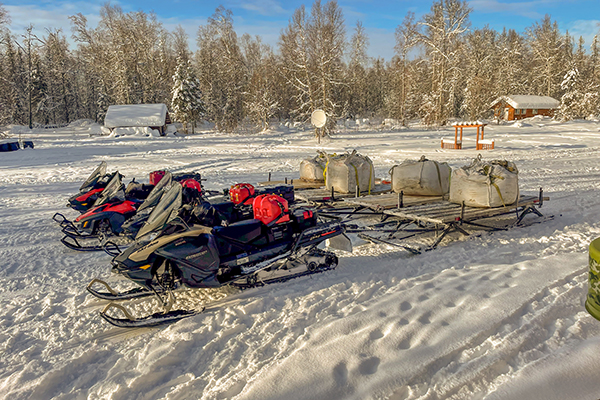
Big Job, Small Solutions: Completing a Complex Remediation in Remote Alaska
At a remote federal remediation site in south-central Alaska, inaccessible by road, barge, or large planes, leveraging the local community and a fleet of snowmobiles and small watercraft allowed for 1,100 bags of contaminated soil to be transported for offsite disposal. -
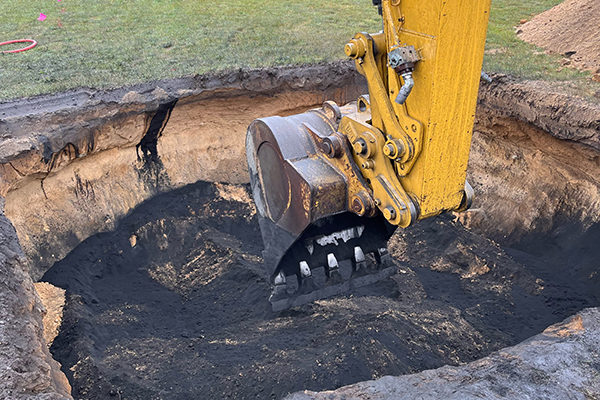
Regenesis Offers Full-Spectrum PFAS Remediation
For project stakeholders and remediation managers confronted with PFAS, Regenesis demonstrates why in situ treatment using Regenesis’ PlumeStop® colloidal activated carbon (CAC) is a game changer. -
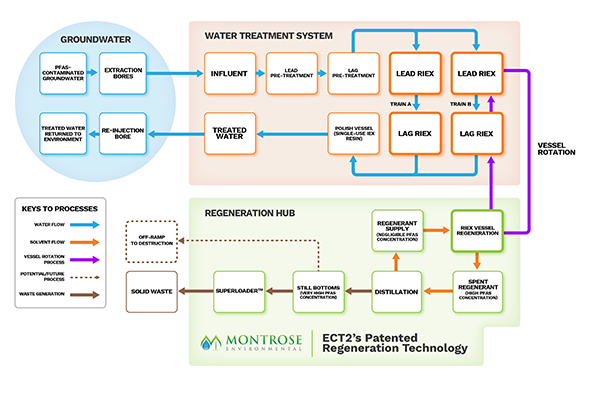
100 Percent PFAS Compliance with Regenerable Ion Exchange Resin
The operational success of a RIEX system spotlights its successful approach to combating PFAS in an effective and economical manner. (Sponsored Content)
